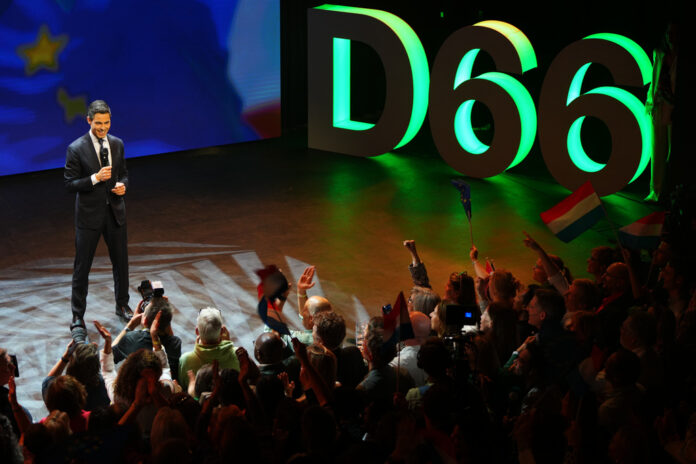In a Europe increasingly agitated by immigration tensions and political disillusionment, the Dutch legislative elections delivered a complex message: a centrist victory for D66, a notable setback for Geert Wilders’ far-right PVV, and yet another triumph of institutional containment over popular expression. What emerges is a power dynamic shaped more by negotiation than by voter clarity.
A Tight Race, a Familiar Outcome
According to the latest projections, centrist D66 has won 27 seats, narrowly defeating the PVV at 25 seats, in a 150-seat Dutch Parliament. This result, reported after 95% of votes were counted, reflects a notable rise for D66, which had held only 9 seats in 2023. Meanwhile, Wilders’ PVV sees a significant drop from its previous high.
Despite this, the institutional response remains consistent: mainstream parties have reaffirmed their refusal to collaborate with Wilders, effectively neutralising his political momentum. The “cordon sanitaire” remains firmly in place, the system tolerates dissent, but never lets it govern.
Rob Jetten: Symbolism Over Substance?
At just 38 years old, Rob Jetten, leader of D66, may become the youngest prime minister in Dutch history. Progressive, media-savvy, and openly gay, Jetten embodies the EU’s modern political archetype. His supporters celebrated with EU and Dutch flags — a visual cue to Brussels’ continued influence in the region.
But the reality is less triumphant. D66 commands less than a fifth of the seats and will need to form a broad, ideologically fragile coalition. The victory is more symbolic than structural, more about containment than mandate.
PVV: Strong but Politically Isolated
The PVV’s 25-seat result confirms its persistent relevance, especially on issues like immigration, housing shortages, and national identity. Yet the political establishment remains unshaken. Wilders, who triggered these snap elections by collapsing the previous coalition over migration policy, now finds himself excluded from power once more.
His reaction was measured: “We had hoped for a different result, but stayed true to ourselves,” he posted on X. The tone signals that while electoral gains may fluctuate, the political wall built around his party is as firm as ever.
Fragmented Landscape, Fragile Government
The rest of the Parliament remains a mosaic of incompatible visions. Centre-right VVD is projected to win 23 seats; the Green-Left alliance led by Frans Timmermans trails with 20. Forming a majority coalition (76 seats minimum) will require uncomfortable compromises.
Political scientist Sarah de Lange summarized it succinctly: “Parties are ideologically far apart, which will make compromises very difficult.” Until a new coalition is formed, caretaker Prime Minister Dick Schoof will continue to manage day-to-day affairs.
Meanwhile, Timmermans has stepped down as leader of the leftist alliance, admitting disappointment: “Tonight, I leave my position with a heavy heart.” A symbolic end for one of the EU’s old guard.
A European Signal, Or A Strategic Pause?
The Dutch legislative elections do not mark a populist wave nor a centrist consolidation, they confirm that European politics now revolve around managing volatility rather than resolving it. Wilders’ exclusion demonstrates that the system can adapt just enough to avoid disruption, while D66’s win underscores that legitimacy often comes more from elite consensus than voter enthusiasm.
The real issue remains: how long can such a managed equilibrium last? With 400,000 housing units missing, rising healthcare costs, and widening cultural rifts, the next coalition will inherit more risk than mandate.
The 2025 Dutch legislative elections have not altered Europe’s balance, they’ve reinforced it. The centre holds, the right is restrained, and the system survives. But beneath the numbers lies a deeper discontent: a continent where votes are counted, but voices are filtered. If Europe continues down this path, it may soon discover that order without representation is just another form of instability.



